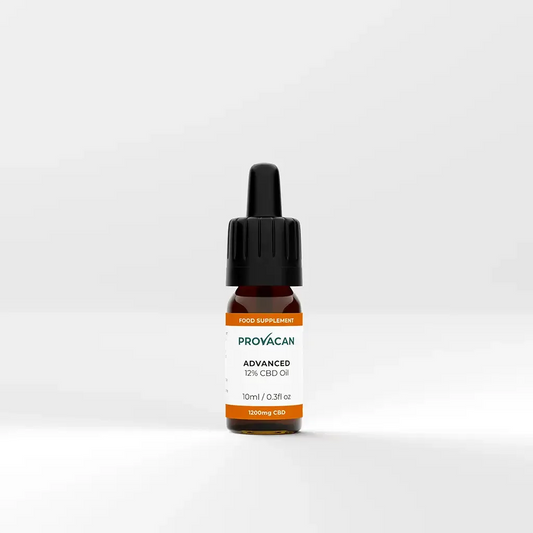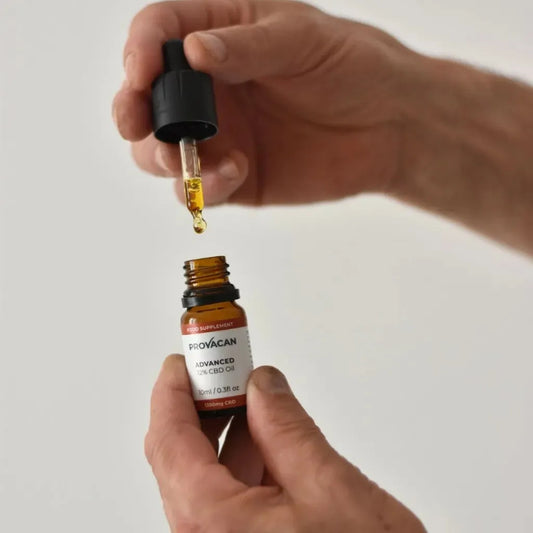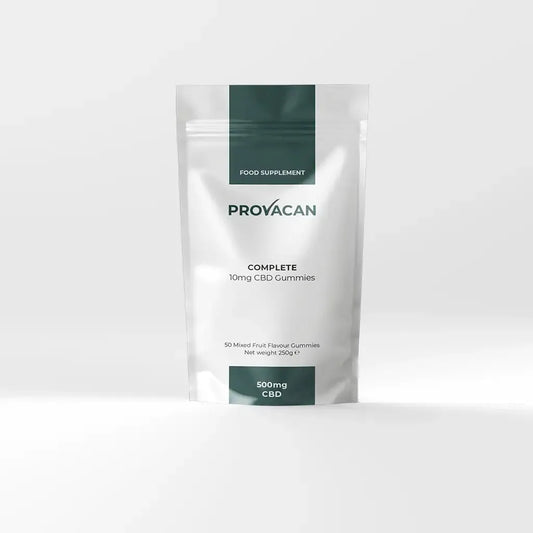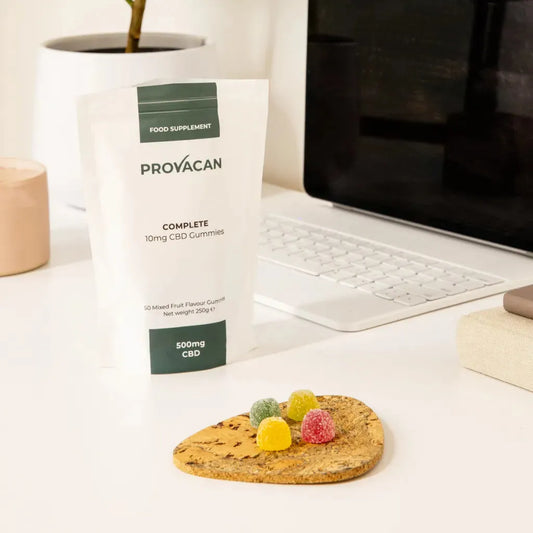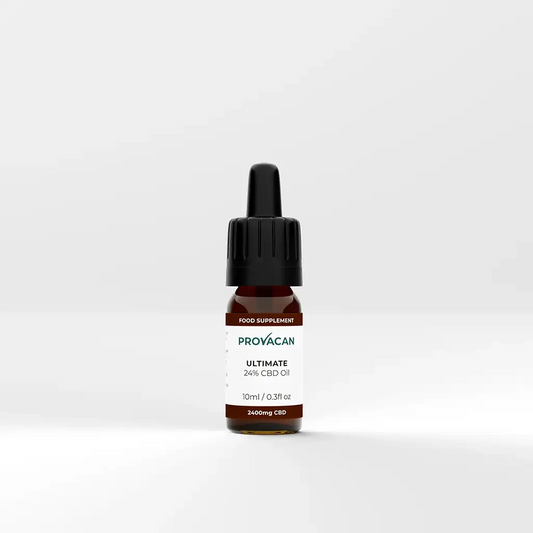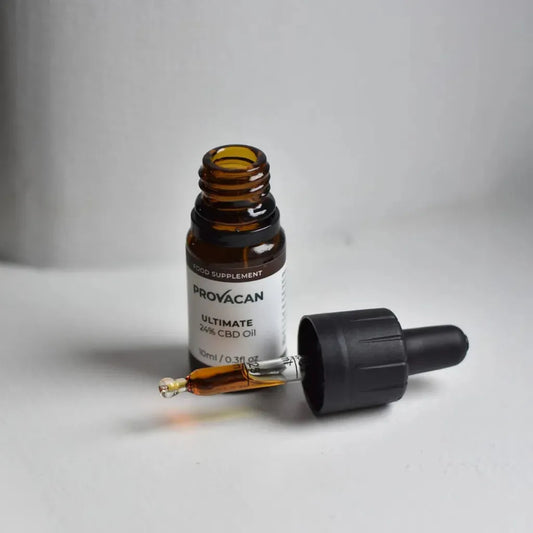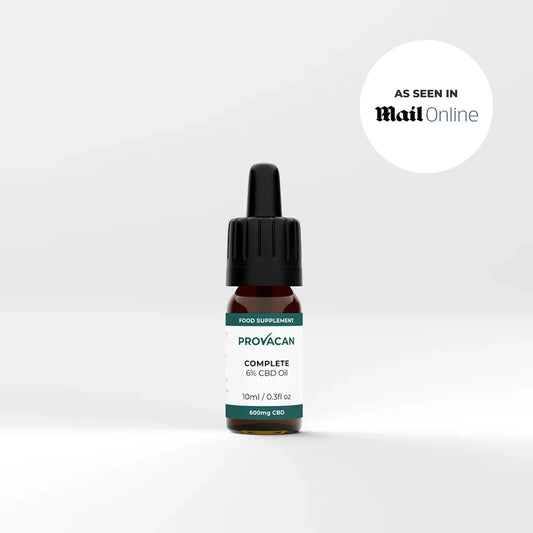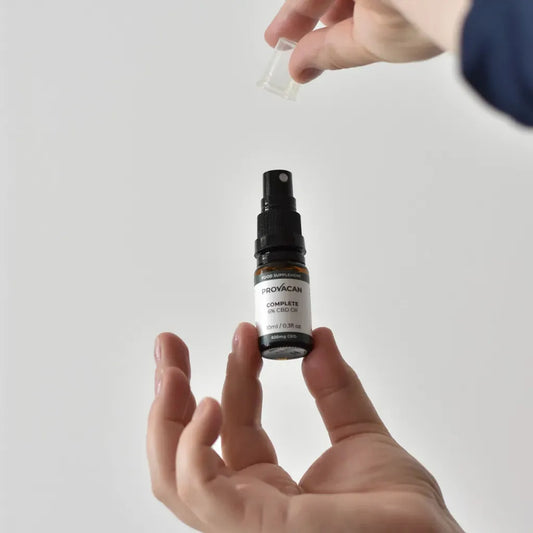Key Takeaways:
- Your Unique Body Impacts How Long CBD Stays in Your System: Factors like your body weight and metabolism have an impact on how long CBD lasts in your system.
- Quality and the Type of CBD Impact the Duration of CBD in the Body: The quality of the CBD product, as well as the type of CBD product you use, will impact how long you feel the effects.
- Dosage is an Important Factor: The dosage of the CBD product that you use or ingest will have a big impact on how long it lasts in your system.
Cannabidiol, more commonly known as CBD, has surged in popularity for its potential health benefits without psychoactive effects. As people embrace the therapeutic properties of CBD, a common question arises: how long does CBD stay in your system? Understanding how long this compound remains in the body is crucial for individuals considering its use, especially in regulated environments such as the workplace or sports.
The duration CBD stays in your system can vary based on several factors, including dosage, frequency of use, metabolism, and individual body composition. While CBD does not typically show up in standard drug tests, some tests may detect trace amounts of THC, the psychoactive component in cannabis, especially in full-spectrum CBD products. This raises concerns for those who must undergo drug screenings or individuals in industries with strict substance policies.
In this article, we will explore the science behind how long CBD lingers in your system, explore factors that influence its presence, and provide insights to help you make informed decisions when incorporating CBD into your wellness routine. Stay tuned as we uncover essential information on the longevity of CBD in your body and how to navigate concerns related to its detection.
Understanding CBD And Its Effects On The Body
CBD is one of the many compounds found in the cannabis plant. Unlike its counterpart, tetrahydrocannabinol (THC), CBD is non-psychoactive, meaning it does not produce the "high" commonly associated with marijuana use. Instead, CBD interacts with the body's endocannabinoid system, a complex network of receptors that help regulate various functions such as sleep, mood, immune response, and pain perception.
When CBD is consumed, it interacts with these receptors, helping to promote balance and homeostasis within the body. Research suggests that CBD may have potential therapeutic benefits, including pain relief, anxiety reduction, and anti-inflammatory properties.
The effects of CBD can vary depending on factors such as dosage, method of consumption, and individual body chemistry. When taken orally, CBD undergoes a process known as first-pass metabolism in the liver, where it is broken down and metabolized before entering the bloodstream. This process can affect the bioavailability of CBD, or the amount of the compound that actually reaches systemic circulation.
It's important to note that everyone's body processes CBD differently, which can impact how long the compound stays in your system. Factors such as metabolism, frequency of use, and the amount of CBD consumed can all influence how quickly your body clears the compound.
To better understand how long CBD stays in your system, it's essential to consider these individual differences and consult with healthcare professionals or experts in the field. By staying informed and aware of how CBD interacts with your body, you can make more informed decisions about your CBD consumption and overall wellness routine.
Factors Influencing How Long CBD Stays In Your System
When it comes to how long CBD stays in your system, several factors come into play. Understanding these variables can give you a clearer picture of what to expect when consuming CBD products.
Dosage: The amount of CBD you take can affect how long it stays in your system. Higher doses may linger in the body for a longer period compared to lower doses.
Frequency of Use: Consistent use of CBD products can lead to CBD accumulating in your system, potentially extending its presence.
Method of Consumption: The method by which you consume CBD can impact how long it stays in your system. For example, inhaling CBD through vaping may result in quicker absorption and elimination compared to oral consumption.
Metabolism: Each person's metabolism is unique and can affect how quickly or slowly CBD is processed in the body. Individuals with faster metabolisms may eliminate CBD more rapidly.
Body Composition: Factors such as body weight, fat percentage, and overall health can influence how long CBD stays in your system. Generally, those with higher body fat percentages may retain CBD for a longer duration.
Quality of the CBD Product: The quality of the CBD product you use can play a role in how long it stays in your system. High-quality, pure products may be processed more efficiently by the body.
Hydration Levels: Staying hydrated is essential for overall health and can also impact how long CBD remains detectable in your system. Adequate hydration can help facilitate the elimination of CBD.
By considering these factors, you can better understand the dynamics of how long CBD may stay in your system and tailor your CBD consumption accordingly.
The Role of Metabolism In CBD Absorption And Elimination
Metabolism plays a crucial role in how long CBD stays in your system. When you consume CBD, it enters your bloodstream and is eventually metabolized by enzymes in the liver. This metabolic process breaks down CBD into different metabolites that are then eliminated from the body through urine or feces.
The speed at which your body metabolizes CBD can vary based on factors such as age, weight, and overall health. Individuals with faster metabolisms may process and eliminate CBD more quickly than those with slower metabolisms. Additionally, the method of consumption can also impact how long CBD stays in your system.
For example, when you inhale CBD through vaping or smoking, it enters your bloodstream rapidly through the lungs, leading to a quicker onset of effects but also a faster elimination from the body. On the other hand, if you consume CBD edibles or capsules, the absorption process is slower as the CBD has to pass through the digestive system before entering the bloodstream, resulting in a delayed onset of effects but potentially a longer duration of action.
It's essential to note that while CBD is generally well-tolerated, individual responses can vary. Some people may metabolize CBD more slowly, leading to a longer presence in the body, while others may eliminate it more quickly. This variability underscores the importance of consulting with a healthcare professional before incorporating CBD into your wellness routine, especially if you are taking medications or have existing health conditions that may interact with CBD.
Different Forms Of CBD And Their Impact On Duration
When considering how long CBD stays in your system, it's essential to understand that the duration can vary based on the form of CBD you consume. Here are some common forms of CBD and how they may impact how long it stays in your body:
Ingestible CBD: This includes CBD oils, capsules, edibles, and beverages. When you ingest CBD, it has to pass through your digestive system before entering your bloodstream. As a result, ingested CBD may take longer to take effect, but it can have a longer duration in your system.
Sublingual CBD: Sublingual products, such as tinctures and sprays, are placed under the tongue for rapid absorption. Sublingual administration allows CBD to enter the bloodstream more quickly than ingested forms, potentially leading to a shorter duration in your system.
Topical CBD: Creams, lotions, and balms that are applied directly to the skin are examples of topical CBD products. While topical CBD does not enter the bloodstream in significant amounts, it can still be detectable on the skin for a period of time.
It's important to note that individual factors, such as metabolism, frequency of use, and dosage, can also influence how long CBD stays in your system regardless of the form consumed. As always, it's best to consult with a healthcare professional for personalized guidance on CBD use.
Short-Term vs. Long-Term CBD Use: What You Need To Know
When considering the duration of CBD in your system, it's essential to differentiate between short-term and long-term use.
Short-Term Use:
Short-term use of CBD typically refers to occasional or intermittent consumption. If you're using CBD for a specific situation, like managing anxiety or promoting relaxation, the compound may stay in your system for a shorter duration compared to long-term users. Short-term effects usually peak within a few hours of consumption and can last anywhere from a few hours to a couple of days, depending on individual metabolism and dosage.
Long-Term Use:
Long-term CBD use involves regular, consistent consumption of CBD over an extended period. When using CBD products daily as part of a wellness routine, the compound may accumulate in the body over time, leading to potential variations in how long it stays in your system. Some studies suggest that with prolonged use, CBD could build up in fat cells and organs, contributing to an extended presence in the body.
It's crucial to note that individual factors such as metabolism, body weight, dosage, and the type of CBD product consumed can all influence how long CBD stays in your system. Regular users, especially those taking CBD products with higher concentrations, may experience prolonged presence of CBD and its metabolites compared to occasional users.
Before starting any CBD regimen, consult with a healthcare professional to determine the best approach based on your individual needs and circumstances. Understanding the differences between short-term and long-term CBD use can help you make informed decisions regarding your wellness journey.
How Different Dosages Of CBD Affect Its Presence In The Body
When considering how long CBD stays in your system, it's essential to understand that the dosage you consume plays a crucial role. The effects of CBD can vary based on the amount taken, with higher doses potentially leading to a longer presence in the body.
Research suggests that lower CBD doses typically have a shorter duration in the system compared to higher doses. Lower doses may be processed and eliminated more quickly by the body, resulting in a shorter detection window. On the other hand, higher doses of CBD may take longer to metabolize, leading to a longer presence in the body.
Furthermore, individual factors such as metabolism, body weight, and method of consumption can also influence how long CBD stays in your system. For instance, ingesting CBD in the form of edibles or capsules may result in a slower onset of effects but a longer duration of action compared to vaping or sublingual administration.
It's important to note that while lower doses of CBD may offer quicker clearance from the body, they may also provide milder effects. On the contrary, higher doses may lead to longer-lasting effects but could also increase the chances of CBD lingering in the system for an extended period.
Ultimately, finding the right dosage that works best for you is a personal journey that may require some experimentation. Consulting with a healthcare provider or a CBD specialist can help guide you in determining the most suitable dosage based on your specific needs and desired outcomes. By understanding how different doses of CBD can affect its presence in the body, you can make informed decisions to optimize your CBD experience while being mindful of its potential duration in your system.
Final Thoughts
The question of how long CBD stays in your system is a critical one for many individuals interested in incorporating this cannabinoid into their daily wellness routine. While everyone's body may metabolize CBD differently, research suggests that it typically remains detectable in the body for a few days to a few weeks after consumption. Factors that can influence how long CBD stays in your system include dosage, frequency of use, metabolism, and individual body composition.
It is important to note that the vast majority of CBD users will not experience any psychoactive effects or other negative consequences from using CBD products. Additionally, CBD is generally well-tolerated by most individuals. However, it is always recommended to consult with a healthcare professional before starting any new supplement regimen, including CBD.
At Provacan, we are dedicated to providing the highest quality CBD products backed by rigorous scientific research. Our commitment to your well-being drives us to deliver products that meet the highest standards of purity and potency. Whether you are new to CBD or a seasoned user, you can trust Provacan to deliver the effectiveness and quality you deserve.
Remember, when it comes to CBD and its effects on your body, knowledge is key. Stay informed, choose reputable brands, and make informed decisions about your wellness journey. Thank you for entrusting Provacan with your well-being.
Read also:
- CBD Dosage: How Much Should I Take?
- CBD and Driving UK, What You Need to Know
- Does CBD Work for Everyone?
Frequently Asked Questions on How Long CBD Stays in Your System
How long does CBD stay in your system?
The duration CBD remains in your system varies, but it's generally estimated to be between 2 to 5 days for most people. However, this can differ widely among individuals, based on several factors such as metabolism, dosage, and frequency of use.
What factors influence how long CBD stays in your system?
Several factors can affect how long CBD stays in your system, including your metabolism, the amount and potency of CBD consumed, your body mass, hydration levels, and how frequently you use CBD.
Is there a difference in how long CBD oil vs edibles stay in your system?
Yes, the method of consumption can influence how long CBD remains detectable in your system. CBD oil, when taken sublingually (under the tongue), enters your bloodstream more directly and might be processed faster than edibles, which must go through your digestive system, potentially prolonging the presence of CBD in your body.
Can CBD be detected in a drug test?
Most standard drug tests are designed to detect THC (tetrahydrocannabinol), the psychoactive compound in cannabis, not CBD. However, some CBD products may contain trace amounts of THC, which could potentially result in a positive test result.
How long after taking CBD will I test positive on a drug test?
Considering most drug tests do not specifically screen for CBD, a pure CBD product should not cause a positive drug test. If the product contains THC, detection times can vary based on usage frequency, body composition, and the test's sensitivity.
Does the method of consumption affect how long CBD stays in your system?
Yes, the method of consumption can impact how long CBD is detectable. Inhalation provides a quick onset but a shorter duration in the body, whereas oral consumption, like edibles or capsules, results in a slower start but a longer presence in the system due to extended processing time.
How does body weight influence the duration CBD stays in your system?
Individuals with a higher body mass may retain CBD longer than those with a lower body weight. Fat cells can absorb and store compounds like CBD, potentially extending the duration it remains detectable in the body.
Does the frequency of CBD use affect how long it stays in your system?
Yes, regular and prolonged use of CBD can lead to accumulation in the body, meaning it might take longer to be entirely cleared from your system compared to occasional use.
Sources:
- Busse, J. W., Vankrunkelsven, P., Zeng, L., Heen, A. F., Merglen, A., Campbell, F., Granan, L.-P., Aertgeerts, B., Buchbinder, R., Coen, M., Juurlink, D., Samer, C., Siemieniuk, R. A. C., Kumar, N., Cooper, L., Brown, J., Lytvyn, L., Zeraatkar, D., Wang, L., & Guyatt, G. H. (2021). Medical cannabis or cannabinoids for chronic pain: a clinical practice guideline. BMJ, 374, n2040. https://doi.org/10.1136/bmj.n2040
- NHS . (2022, May 27). Medical cannabis (and cannabis oils). NHS. https://www.nhs.uk/conditions/medical-cannabis/
- Daily use of cannabidiol (“CBD”) oil may be linked to lung cancer regression | BMJ. (n.d.). https://www.bmj.com/company/newsroom/daily-use-of-cannabidiol-cbd-oil-may-be-linked-to-lung-cancer-regression/




